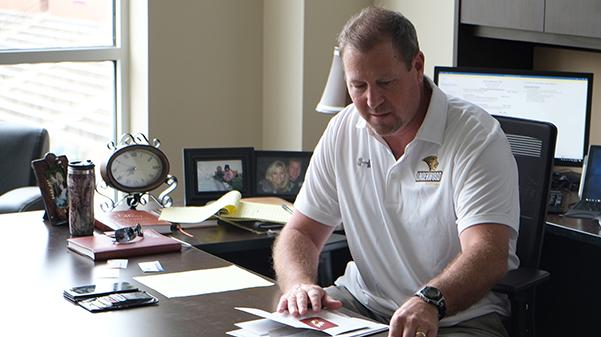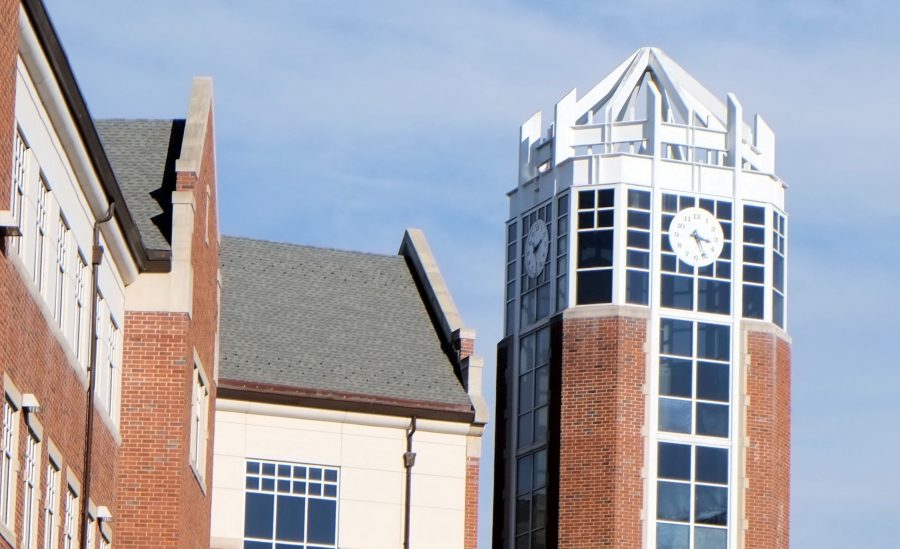Katie Brosamer-Senger | Staff Reporter
Posted April 8, 2014; 1:45 p.m.
Published Legacy April 8, 2014
 Sustainability means to provide a way to address ecological, social, and economic concerns, by creating ways that they can all work in harmony. A lot of local colleges in the area, including University of Missouri-St. Louis, Saint Louis University, Washington University, St. Charles Community College and Maryville are members of Association for the Advancement of Sustainability in Higher Education. AASHE offers awards to colleges who promote and provide sustainable practices on their campus.
Sustainability means to provide a way to address ecological, social, and economic concerns, by creating ways that they can all work in harmony. A lot of local colleges in the area, including University of Missouri-St. Louis, Saint Louis University, Washington University, St. Charles Community College and Maryville are members of Association for the Advancement of Sustainability in Higher Education. AASHE offers awards to colleges who promote and provide sustainable practices on their campus.
Maryville University has made many changes in the last few years to promote campus sustainability. The Center for Sustainability was created in June 2011 by President Mark Lombardi. Peggy Lauer, Director of Sustainability at Maryville, said, “It is President Lombardi’s goal to create a Center for Sustainability around each of Maryville’s core values.”
President James Evans for Lindenwood University said that while there are no immediate plans to create a sustainability center on campus, they are working with the LSGA and LU Sustainability Alliance to reduce the campus’ carbon foot print.
“We are working with both the LSGA and the LU Sustainability Alliance to review our present recycling program, with an eye towards expanding it somewhat,” said President Evans.
 Recycling is a major concern for the LU Sustainability Alliance; they recently hosted a “Dumpster Dive” event to see just how much of the waste that Lindenwood generates could have been recycled or composted. They collected data that will be used to apply for grant funding that will hopefully bring a comprehensive recycling program to the university.
Recycling is a major concern for the LU Sustainability Alliance; they recently hosted a “Dumpster Dive” event to see just how much of the waste that Lindenwood generates could have been recycled or composted. They collected data that will be used to apply for grant funding that will hopefully bring a comprehensive recycling program to the university.
Aaron Kothe, president of the LU Sustainability Alliance, said, “This gave us an opportunity to impress upon people just how absurd our waste practices are here at Lindenwood.”
Kothe said the dumpster dive project indicated that 78 percent of the waste Lindenwood generates and sends to the landfills could have been recycled or composted. This finding corresponds very well to the numbers Scott Roberts, CEO of Always Green Recycling, gave last year in an interview where he said he estimated 75 percent of potentially recyclable material generated by Lindenwood is still going to the landfill.
The LU Sustainability Alliance is looking to change these numbers by hopefully started in the near future a dorm recycling program. “We are excited for the upcoming start of a dorm recycling pilot program in Blanton Hall. This program will hopefully lead to recycling opportunities in dorms campus-wide,” Kothe said.
Getting students in the habit of sustainable practice is the problem both the LU Sustainability Alliance and Maryville University run into when trying to fulfill campus-wide initiatives. Lauer said, “Our biggest issue to tackle is changing behavior.” However, she said it was the students that created the recycling program on Maryville’s campus.
While Maryville receives a budget to accomplish some of these sustainable projects they propose on campus, LU does not have a direct budget for sustainability. Kothe said, “There is currently no direct university funding for the sustainability projects we have proposed, but we hope this will change in the near future.”
President Evans said, “We are always looking for fiscally responsible ways to reduce energy consumption that makes the most sense in the context of our overall operations.”
President Evans said Lindenwood has made many changes to campus life that promotes sustainable practice, including; energy reducing features on the new construction projects and expanding campus technology. “We have also spent considerable money on the expansion and updating of campus technology to, among other things, encourage paperless communication, and paperless quizzes, tests and class projects,” President Evans said.
It is clear Lindewood will soon start to make strides in sustainability. Kothe said, “If Lindenwood wishes to continue its historic role as a quality institution, it must embrace ecological as well as financial sustainability.”









